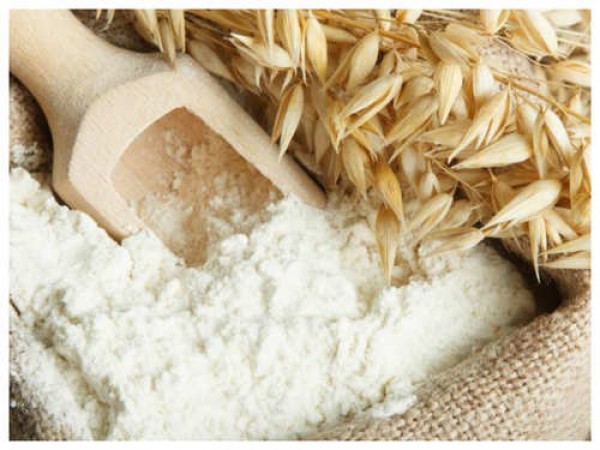
Flour, a seemingly innocuous ingredient found in kitchens worldwide, plays a crucial role in the creation of a myriad of culinary delights. Its powdery texture and versatility make it a staple in households, from bread and pastries to sauces and coatings. However, beneath the flour-dusted surfaces lies a complex narrative of potential harm to the human body. Let's embark on a journey through the intricacies of flour and its often underestimated impact on our health.
Flour, at its core, is a finely ground powder derived from grains or legumes. It serves as a foundational element in cooking and baking, providing structure, texture, and taste to a wide array of dishes. The primary sources of flour include wheat, rice, corn, and various nuts and seeds.
Wheat-based flours, a common and widely used variety, contain a protein known as gluten. While gluten is harmless for the majority, it poses a significant issue for individuals with gluten sensitivity or celiac disease. Gluten sensitivity can manifest in various ways, from digestive discomfort to more severe autoimmune responses.
The flour we often find on our grocery shelves is frequently refined, a process that removes the bran and germ from the grain, leaving behind the starchy endosperm. Unfortunately, this refinement also strips away essential nutrients, such as fiber, vitamins, and minerals, diminishing the nutritional value of the final product.
To comprehend the potential harm flour may inflict on the body, it's essential to delve into its impact on various aspects of health.
Refined flours, with their high glycemic index, can lead to rapid spikes and subsequent crashes in blood sugar levels. This rollercoaster effect poses a significant risk for individuals with diabetes and those aiming for sustained energy levels throughout the day. Maintaining stable blood sugar is crucial for overall health and well-being.
Emerging research suggests a link between the consumption of certain flours and increased inflammation in the body. Chronic inflammation is implicated in various health conditions, including heart disease, arthritis, and autoimmune disorders. Understanding the role of flour in exacerbating inflammatory responses is crucial for preventive health measures.
The gut microbiome, a complex ecosystem of bacteria residing in the digestive tract, plays a pivotal role in overall health. Certain flours, particularly those with added preservatives or lacking in fiber, can disrupt the balance of the microbiome. This imbalance may contribute to digestive issues, compromised immune function, and even mental health challenges.
Acknowledging the potential risks associated with traditional flours prompts a search for alternatives that align with both culinary aspirations and health-conscious choices.
One promising avenue is the incorporation of whole grain flours. Unlike their refined counterparts, whole grain flours retain the bran and germ, ensuring a more comprehensive nutritional profile. Varieties such as whole wheat, brown rice, and oat flour offer a healthier alternative without compromising on taste or texture.
For individuals with gluten sensitivities or celiac disease, the market now boasts a variety of gluten-free flours. From almond and coconut flour to sorghum and tapioca flour, these alternatives ensure that dietary restrictions don't hinder the enjoyment of diverse and flavorful meals.
Armed with knowledge, adopting a mindful approach to flour consumption becomes paramount for maintaining a healthy balance between culinary enjoyment and overall well-being.
Moderation is a cornerstone of a healthy diet. Controlling the amount of flour in recipes not only helps manage caloric intake but also mitigates potential health risks associated with excessive consumption. Balancing flavor and health is an art that begins with portion awareness.
Equipping oneself with the ability to decipher food labels is a powerful tool in making informed dietary choices. Understanding the various types of flour, the presence of additives, and the processing methods empowers individuals to choose products that align with their health goals.
As we navigate the complex terrain of flour's impact on health, it's crucial to explore current trends and innovations shaping the future of this essential kitchen ingredient.
In recent years, there has been a resurgence of interest in ancient grains. Varieties such as quinoa, spelt, and teff, once overshadowed by modern wheat, are gaining popularity for their unique flavors and enhanced nutritional benefits. Rediscovering these forgotten flour varieties adds diversity to our diets and enriches the nutritional tapestry of our meals.
The 21st century brings with it technological advancements that extend to the realm of flour production. Innovative milling techniques, such as stone milling and cold milling, aim to preserve the nutritional integrity of the grain. Additionally, advancements in gluten-free baking technology contribute to the creation of products that rival their gluten-containing counterparts in taste and texture.
In the intricate dance between flavor and health, being conscious of flour's potential impact allows us to savor the joys of cooking without compromising our well-being. By embracing nutrient-rich alternatives, practicing mindful consumption, and staying abreast of flour-related innovations, we can cultivate a culinary experience that nourishes both the body and the soul.
Deepfake Video Crackdown: Centre Sets Seven-Day Ultimatum for Social Media Platforms
Nirbhik Datta: The Magician Redefining Mind Reading for Modern Audiences